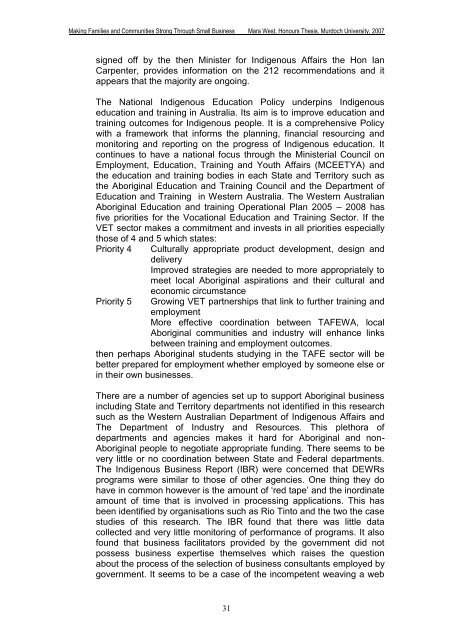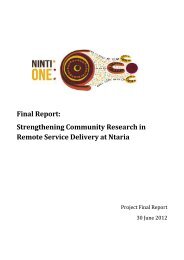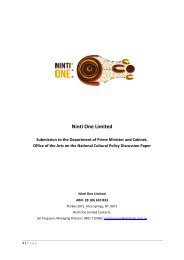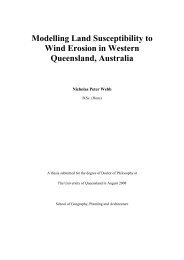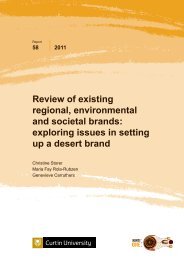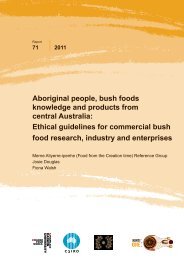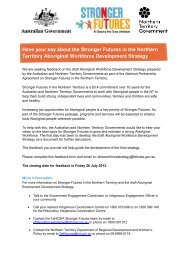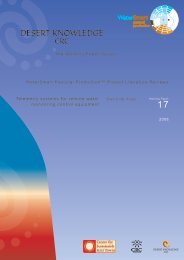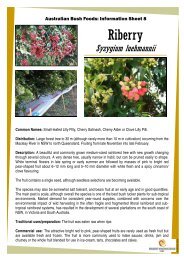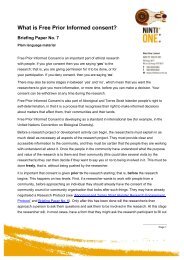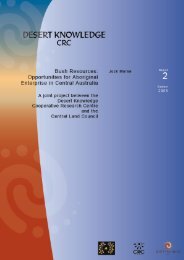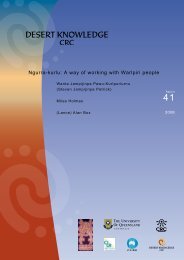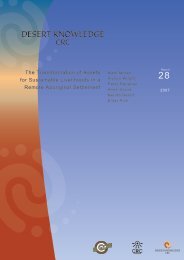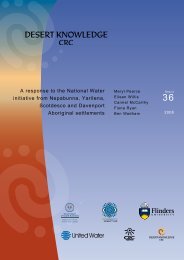MAKING FAMILIES AND COMMUNITIES STRONG THOUGH SMALL BUSINESS
making families and communities strong though small ... - Ninti One
making families and communities strong though small ... - Ninti One
- No tags were found...
Create successful ePaper yourself
Turn your PDF publications into a flip-book with our unique Google optimized e-Paper software.
Making Families and Communities Strong Through Small Business Mara West, Honours Thesis, Murdoch University, 2007signed off by the then Minister for Indigenous Affairs the Hon IanCarpenter, provides information on the 212 recommendations and itappears that the majority are ongoing.The National Indigenous Education Policy underpins Indigenouseducation and training in Australia. Its aim is to improve education andtraining outcomes for Indigenous people. It is a comprehensive Policywith a framework that informs the planning, financial resourcing andmonitoring and reporting on the progress of Indigenous education. Itcontinues to have a national focus through the Ministerial Council onEmployment, Education, Training and Youth Affairs (MCEETYA) andthe education and training bodies in each State and Territory such asthe Aboriginal Education and Training Council and the Department ofEducation and Training in Western Australia. The Western AustralianAboriginal Education and training Operational Plan 2005 – 2008 hasfive priorities for the Vocational Education and Training Sector. If theVET sector makes a commitment and invests in all priorities especiallythose of 4 and 5 which states:Priority 4 Culturally appropriate product development, design anddeliveryImproved strategies are needed to more appropriately tomeet local Aboriginal aspirations and their cultural andPriority 5economic circumstanceGrowing VET partnerships that link to further training andemploymentMore effective coordination between TAFEWA, localAboriginal communities and industry will enhance linksbetween training and employment outcomes.then perhaps Aboriginal students studying in the TAFE sector will bebetter prepared for employment whether employed by someone else orin their own businesses.There are a number of agencies set up to support Aboriginal businessincluding State and Territory departments not identified in this researchsuch as the Western Australian Department of Indigenous Affairs andThe Department of Industry and Resources. This plethora ofdepartments and agencies makes it hard for Aboriginal and non-Aboriginal people to negotiate appropriate funding. There seems to bevery little or no coordination between State and Federal departments.The Indigenous Business Report (IBR) were concerned that DEWRsprograms were similar to those of other agencies. One thing they dohave in common however is the amount of ‘red tape’ and the inordinateamount of time that is involved in processing applications. This hasbeen identified by organisations such as Rio Tinto and the two the casestudies of this research. The IBR found that there was little datacollected and very little monitoring of performance of programs. It alsofound that business facilitators provided by the government did notpossess business expertise themselves which raises the questionabout the process of the selection of business consultants employed bygovernment. It seems to be a case of the incompetent weaving a web31


